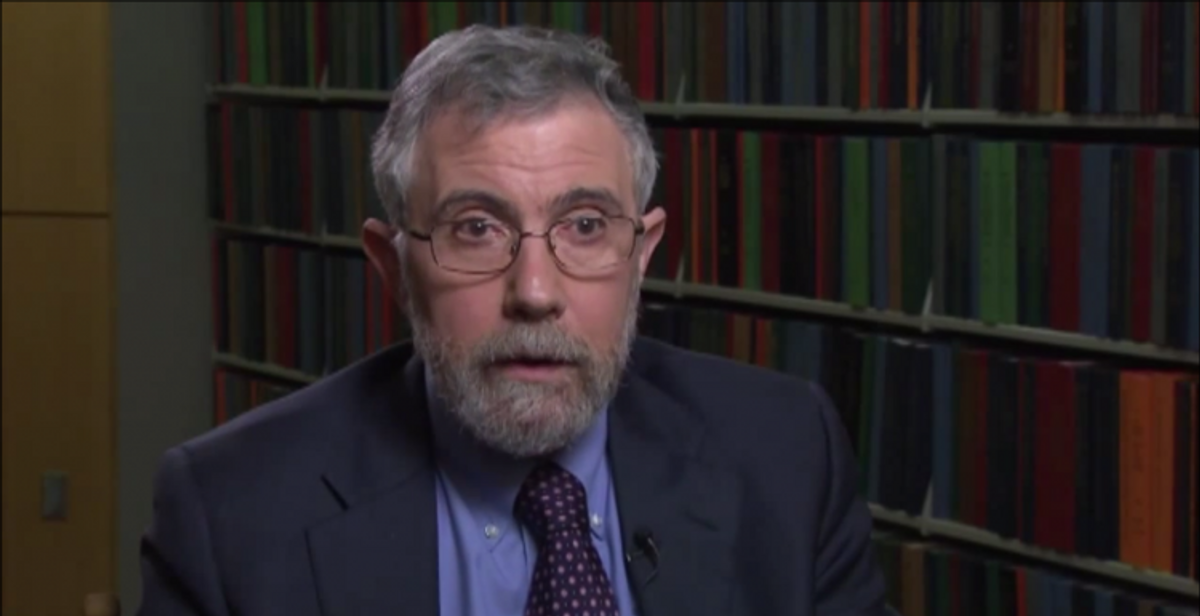In his latest piece for the New York Times, premier liberal pundit and celebrated economist Paul Krugman argues that, despite what you may think, the real reason it's so hard to get American government to tackle climate change isn't because of fossil fuel barons' greed, but rather their "toxic mix of ideology and anti-intellectualism."
Krugman says he's been "looking into" the political economy of climate change. What he's found, he says, is a "somewhat surprising conclusion that it's not mainly about vested interests." The interests exist, no doubt; but Krugman says their economic power isn't so great — and pro-market responses to climate change are not so materially threatening — as to explain why they are so tenaciously resistant to taking action to slow climate change.
So what's the deal? The answer, Krugman says, isn't economic but philosophical. "[T]hink about global warming from the point of view of someone who grew up taking Ayn Rand seriously, believing that the untrammeled pursuit of self-interest is always good and that government is always the problem, never the solution," he writes. "Along come some scientists declaring that unrestricted pursuit of self-interest will destroy the world, and that government intervention is the only answer. It doesn’t matter how market-friendly you make the proposed intervention; this is a direct challenge to the libertarian worldview."
Such a direct challenge, according to Krugman, inspires "angry denial ... venom [and] sheer rage" from those who believe man-made climate change is essentially a conspiracy or a myth. And the fact that holding such a position requires the dismissal of nearly the entire scientific community is, Krugman argues, a feature of its appeal — not a bug.
The fact that climate concerns rest on scientific consensus makes things even worse, because it plays into the anti-intellectualism that has always been a powerful force in American life, mainly on the right. It’s not really surprising that so many right-wing politicians and pundits quickly turned to conspiracy theories, to accusations that thousands of researchers around the world were colluding in a gigantic hoax whose real purpose was to justify a big-government power grab. After all, right-wingers never liked or trusted scientists in the first place.
So the real obstacle, as we try to confront global warming, is economic ideology reinforced by hostility to science. In some ways this makes the task easier: we do not, in fact, have to force people to accept large monetary losses. But we do have to overcome pride and willful ignorance, which is hard indeed.



Shares